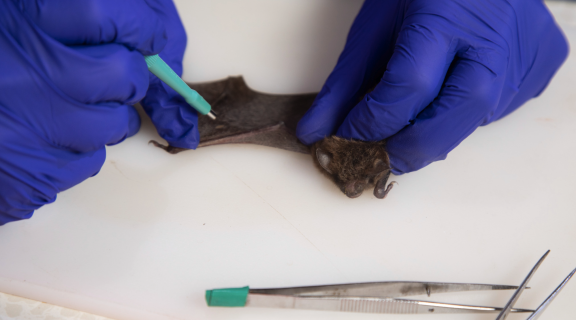
Rosenberg Institute Seminar Series - Sarah Gignoux-Wolfsohn
Overview
Sarah Gignoux-Wolfsohn, Assistant Professor, University of Massachusetts Lowell
Recovery in the Anthropocene: When and how do populations survive disturbance?
Bio
Dr. Sarah Gignoux-Wolfsohn has a B.A. in Biology and French from Wesleyan University and a PhD in Ecology Evolution and Marine Biology from Northeastern University. She is currently an Assistant Professor at the University of Massachusetts Lowell. She was previously a Postdoctoral Researcher at the Smithsonian Environmental Research Center and Rutgers University. She studies the relationships between biodiversity, climate change, and infectious disease.
Abstract
Global change is making acute disturbances such as novel infectious disease and extreme environmental changes increasingly common. These events can lead to mass mortality, shifting species distributions, and altered ecosystem function. They can also select for adaptive traits, sometimes leading to evolutionary rescue. Survival and recovery depend on several factors including standing genetic variation, mobility, and microbiome plasticity. I will explore these ideas in three different systems: coral reefs, North American bats, and zooplankton communities.